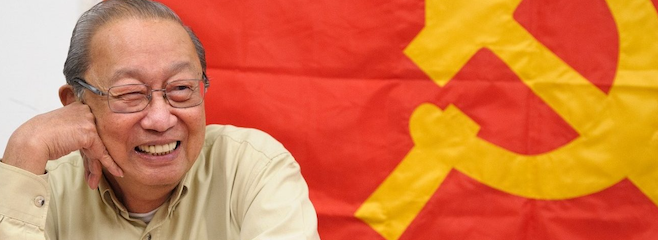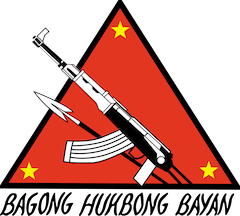
Jose Maria Sison (1939-2022, age 83). Known as Joma, was a Filipino revolutionary leader, writer, poet, and political theorist who founded and led the Communist Party of the Philippines (CPP) and established the ideological framework for one of Asia’s longest-running Communist insurgencies.
Jose Maria Sison was born in Cabugao, Ilocos Sur, Philippines, and emerged as a pivotal figure in the modern Philippine communist movement. Sison was pivotal in the establishment of the modern Communist movement in the Philippines.
Before his revolutionary activities, Sison served as a university professor and youth activist, teaching English literature and political science at several Philippine universities. Jose Maria Sison taught English literature and political science in several Philippine universities. He is an authority in Marxist theory and practice.

In 1968, Sison founded the Communist Party of the Philippines, reorganizing it from the earlier Partido Komunista ng Pilipinas – 1930.
A key leader in the longest-running communist insurgency in Asia, Sison split from the Partido Komunista ng Pilipinas-1930 and reorganized it into the current CPP.
The CPP incorporated Maoist elements into its revolutionary philosophy, adapting Chinese communist strategies to Philippine conditions.
Sison also played a crucial role in establishing the New People’s Army and the National Democratic Front, creating a comprehensive revolutionary infrastructure.
Sison’s leadership extended beyond organizational work to theoretical contributions in Marxist theory and practice. His writings, including numerous books and poems, articulated the ideological foundations of the Philippine revolution. During the 1970s, he was imprisoned by the Marcos regime but continued his political work from detention, producing influential texts on revolutionary strategy.
Following his release, Sison went into exile in the Netherlands, where he continued to lead the CPP remotely for decades. His time in exile was marked by ongoing involvement in peace negotiations with the Philippine government and continued theoretical work on revolutionary politics.
The revolutionary movement under Sison’s leadership faced significant challenges, including internal conflicts and bloody purges that weakened the organization. These internal struggles reflected broader strategic disagreements within the communist movement about tactics and direction.
A bloody internal purge left hundreds dead, further weakening the rebels whose numbers have declined over time.
Throughout his life, Sison remained committed to anti-imperialist and anti-colonial struggle, viewing the Philippine revolution as part of a broader global movement against Western imperialism.
Sison dedicated his life to fighting colonialism and imperialism. His influence extended beyond the Philippines to international communist movements, where he was recognized as a significant theoretical voice.
Jose Maria Sison died in exile in Utrecht, Netherlands, on December 16, 2022, at age 83. His legacy remains complex and contested, with supporters viewing him as a dedicated revolutionary and critics questioning the effectiveness and human cost of his methods.
The Second Congress of the Communist Party of the Philippines (CPP) “Resolved, to give the highest honors to Comrade Jose Ma. Sison, great communist thinker, leader, teacher and guide of the Filipino proletariat and torch bearer of the international communist movement.”